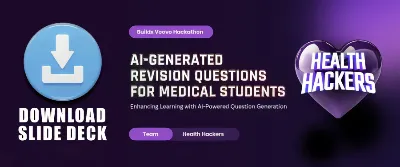Brains, Voice, Eyes, and Beard
Our Hackathon Adventure at BuildX Voovo Budapest
The clock was ticking, pizza power was flowing through our veins, and our team, the Health Hackers, was racing to build an AI-powered quiz generator at the BuildX Voovo Hackathon in Budapest. What followed was a whirlwind of late nights, AI struggles, and last-minute twists in a battle against time and technology.
March 2025
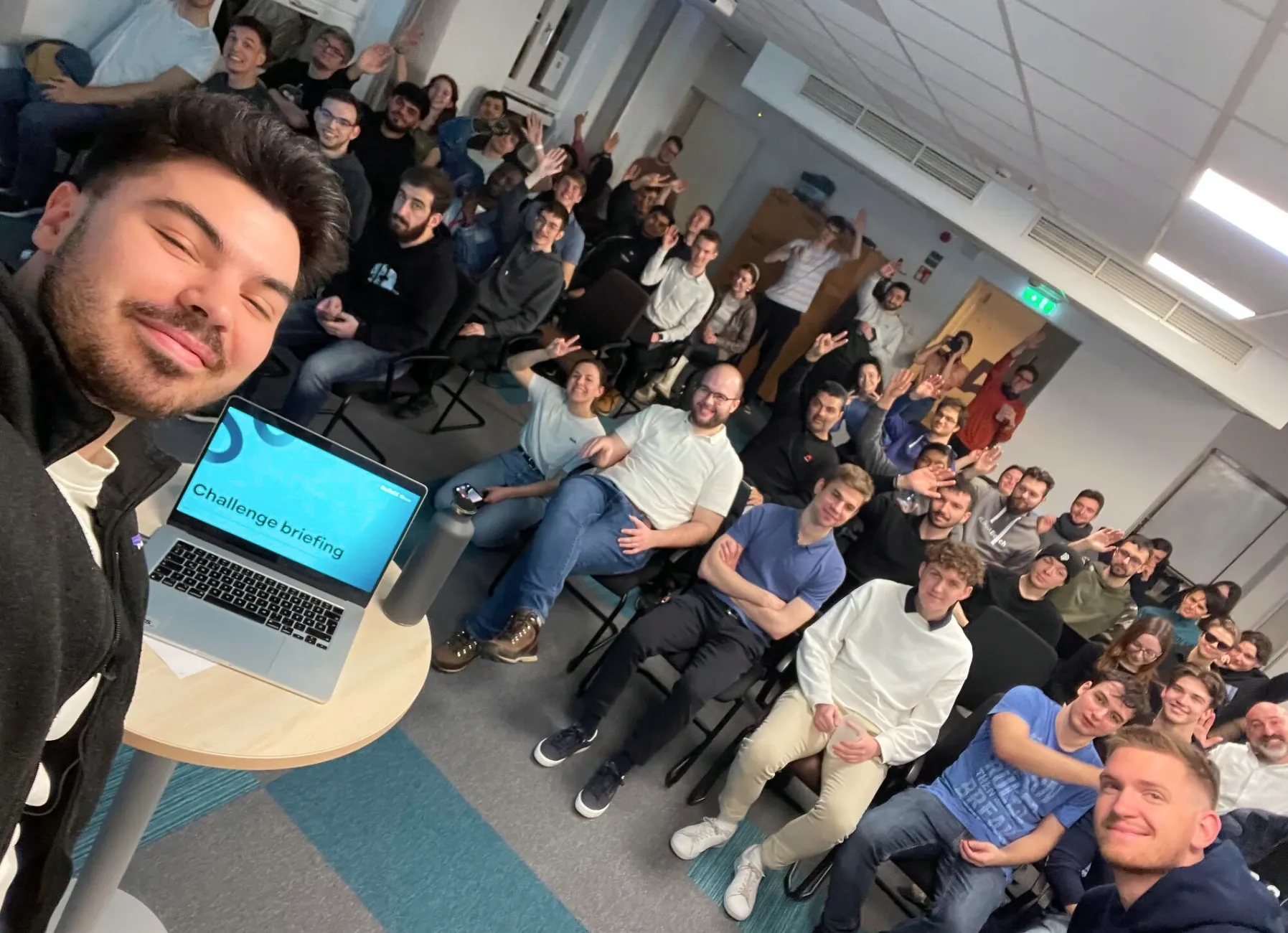
The participants at the hackathon. (Photo: Benedek Hermán)
It all started with a message on WhatsApp.
Gabriella sent us the announcement about a hackathon in Budapest. It was about the use of artificial intelligence and large language models for medical education. It looked interesting. I was in.
It had been two years since we last stood together as a team, since CraftHack 2023, when we created the concept for HealthHub, an app to book and prioritize CT scans across hospitals and regions. Back then we walked away as winners. Life had taken us in different directions, but the bonds we formed during those caffeine-fueled days of coding and collaboration had never fully faded.
The timing was perfect. The BuildX Voovo hackathon was taking place from February 28th to March 2nd, 2025. It promised to be a weekend of problem-solving, learning, and, of course, reunions. Budapest was calling.
Touchdown in Budapest
Living in Thessaloniki, I was lucky, Ryanair had a direct flight to Budapest. And with March 3rd being a public holiday, all I had to do was take one day off work. The stars had aligned.
Gabriella and Bikash were already in Budapest. One team member, Gábor, couldn't make it, but as fate would have it, we met Krisztian "Chris" Bertalan, an old university acquaintance of Bikash's, just as we were forming our team. And just like that, we were the "Health Hackers."
- Gabriella Feliciano ("The Eyes" - design and quality assurance)
- Krisztian "Chris" Bertalan ("The Brains" - implementation, data science and machine learning)
- Bikash Kumar Mahanti ("The Voice" - data science and machine learning)
- Marin Balabanov ("The Beard" - organization and presentation)
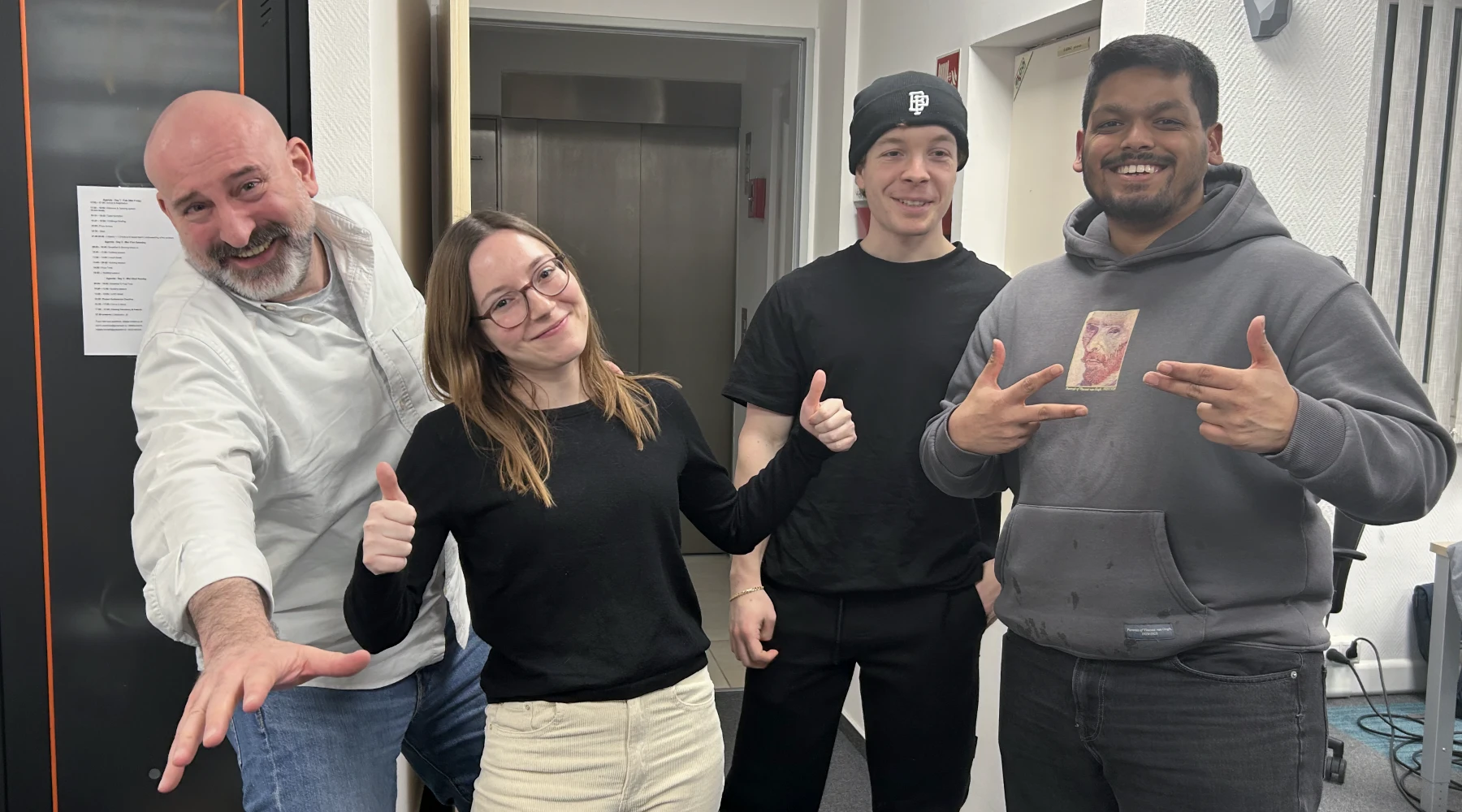
Our team, the Health Hackers, at the BuildX Voovo hackathon in
Budapest. (Photo: a kind participant)
Day 1: Into the Fire
The StartIt@K&H Incubator was in an impressive building, a modern space in downtown Budapest, complete with a theater, offices, and a hacker space on the top floor.
By afternoon, the hackathon had begun. It was organized by the Mesh Hacker Lab and Voovo, makers of an excellent mobile app that helps students with personalized revisions for their exam preparation. In an initial briefing, the organizers presented the challenge: How can AI generate high-quality revision quizzes from medical text books?
The requirement was not just multiple-choice exam questions, but structured, intelligent, and useful revision questions. The organizers wanted us to produce something that could genuinely help medical students prepare for exams.
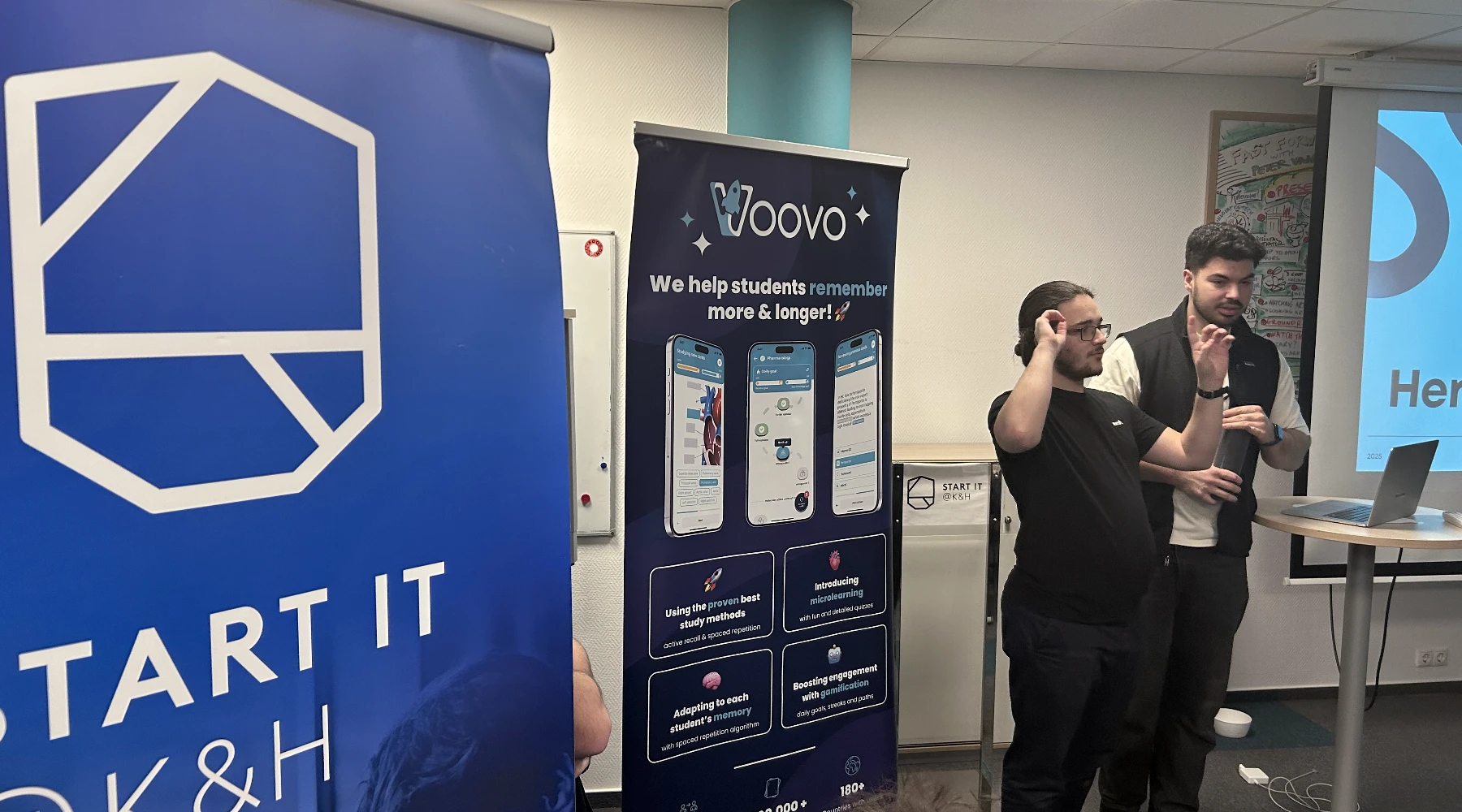
The initial briefing. (Photo: Marin Balabanov)
Unlike other hackathons where a fancy pitch deck and a working prototype might be enough, here we had to deliver actual results. No fluff. No shortcuts.
The organizers provided a GitHub repository filled with PDFs of medical lecture notes, research papers, and textbooks, along with JSON files listing topics and subtopics. We also received API keys for OpenAI, Google Gemini, DeepSeek, and other AI models.
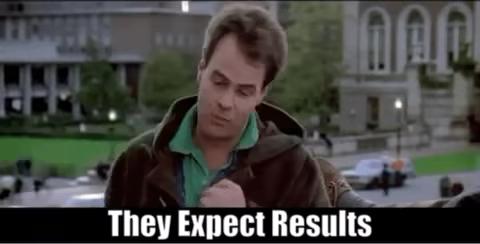
They really did expect results at the hackathon. (A scene from
Ghostbusters)
Experimentation & The First Late Night
We split up. Chris, Bikash, and I started experimenting with different models, building small Python and NodeJS scripts to extract topics, summarize PDFs, and generate quizzes.
Gabriella took charge of quality control, making sure whatever we produced actually made sense. By midnight of the first day, we had working prototypes using the following a tech stack:
- Python for data processing
- Google Gemini as our AI model (it produced better results than ChatGPT for this task)
Some teams slept in the venue on bean bags, refusing to stop working. I, however, had an accommodation nearby, a choice I did not regret.
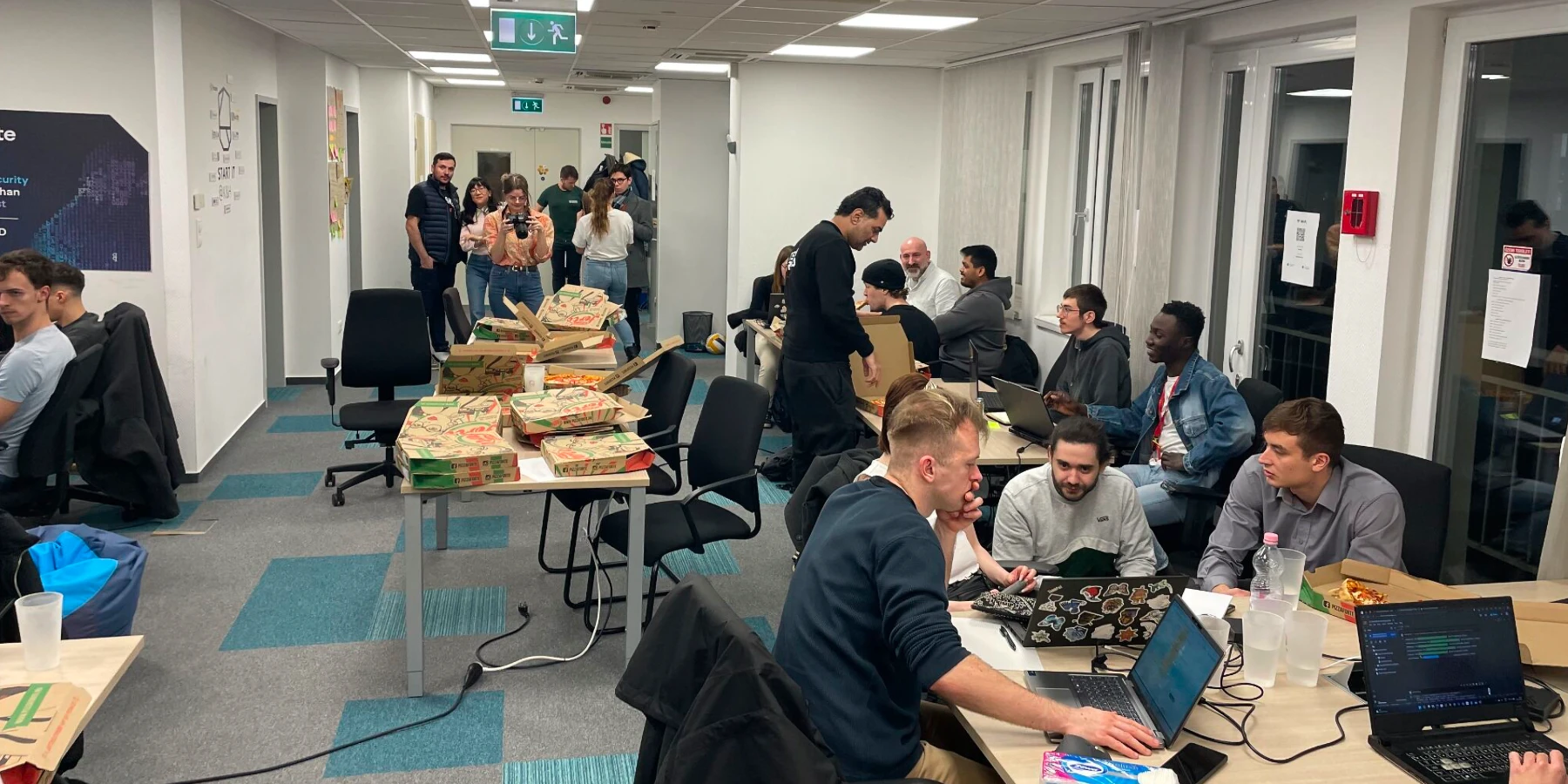
This was the first of two rooms with the participating teams.
(Photo: Benedek Hermán)
Day 2: The Grind
We arrived at 9 AM, running on croissants and coffee (all with the complements of the hackathon oarganizers). There was even some leftover pizza from the night before.
It became clear that my role would be more hands-off. Chris and Bikash were in a coding duel, pushing Gemini and ChatGPT to generate better results. Gabriella was our filter, deciding what was usable and what wasn't. I focused on structuring our final presentation, capturing the essence of our approach.
The deeper we went, the more problems we encountered:
- AI Hallucinations: The model sometimes generated completely false medical questions.
- Too-Obvious Answers: Some correct answers stood out too much, making the quizzes ineffective.
- Scalability Issues: Processing multiple large PDFs at once was a nightmare.
Bikash spent a lot of time talking to medical instructors at the event, refining our approach. Chris tweaked our prompts, fine-tuned Gemini, and by nightfall, we had a semi-working prototype.
It wasn't perfect. But it was real.
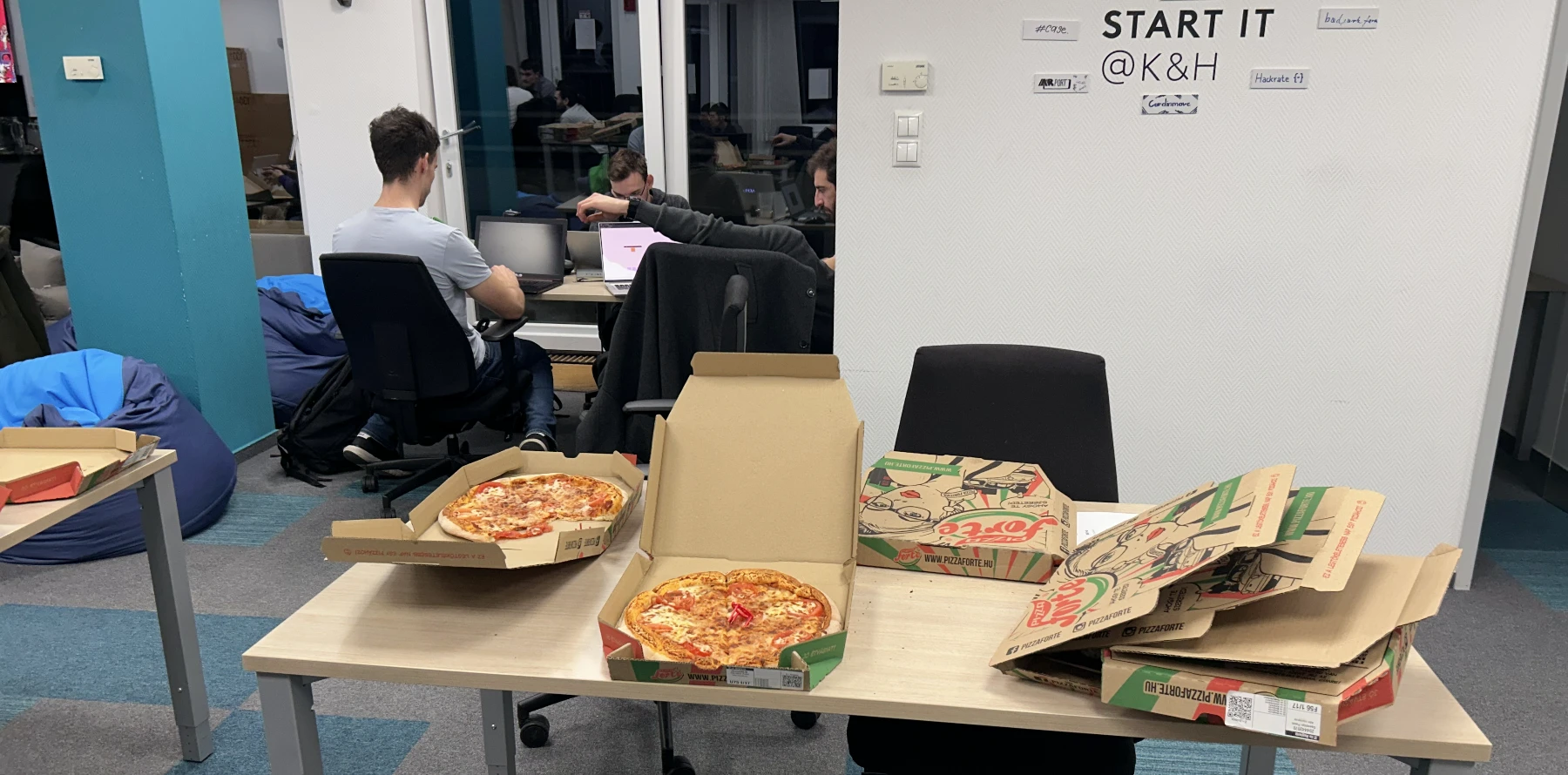
Pizza power: the hackathon was fueled by complementary pizza.
(Photo: Marin Balabanov)
Day 3: The Final Stretch
The final morning started with panic.
Chris had worked through part of the night, refining the model. We tested it, and while some questions were great, others were hilariously bad.
Then the organizers threw us all a curveball. Originally, we had to generate quizzes from seven topics. Suddenly, that number changed to 30. Given that our processing time was three to five minutes per topic, this last-minute change meant one thing: crunch time.
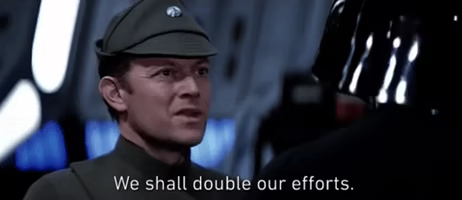
We had to up our game. (A scene from Return of the Jedi)
While our app chewed through the data, Gabriella and I fine-tuned the presentation. I ran two presentation trial runs with the team, tweaking the narrative while the final dataset was being processed.
The Final Product: What We Built
Our app analyzed and summarized medical lecture materials. It used natural language processing techniques to extract key topics and standardize terminology. It generated multiple-choice revision quizzes with:
- One correct answer
- Four distractors (wrong answers that were actually plausible)
We fine-tuned Gemini, using supervised learning to improve quality. It wasn't just functional. It was actually useful.
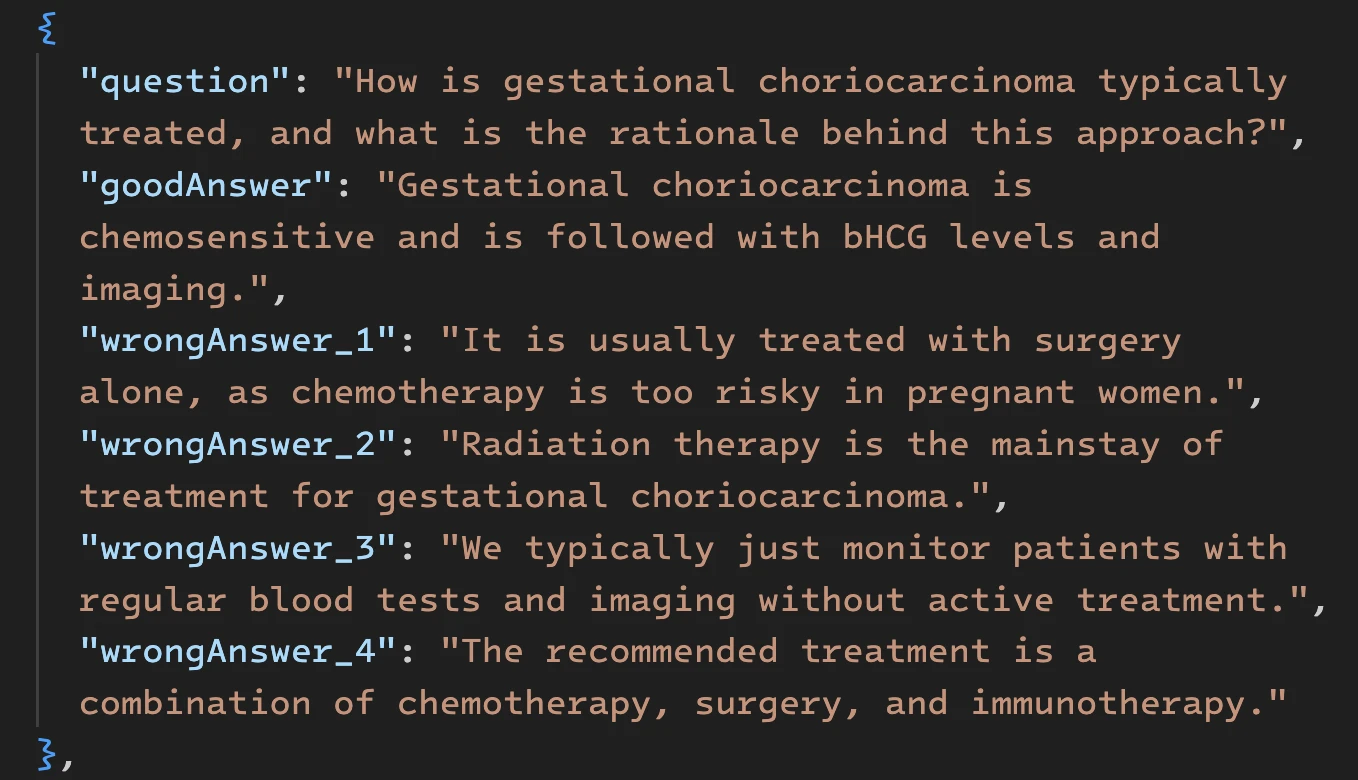
Here is an example of the questions that we generated. We
were rather happy by the results.
Unfortunately, we can't share the GitHub repository from the hackathon, as it contains PDF materials provided by the organizers, which we don't have permission to distribute. Additionally, our solution relies on Google Gemini's API, which requires an access key that we can't share publicly. However, if you're interested in the technical approach we took, how we processed the PDFs, structured the data, and fine-tuned the AI for quiz generation, we'd be happy to discuss it!
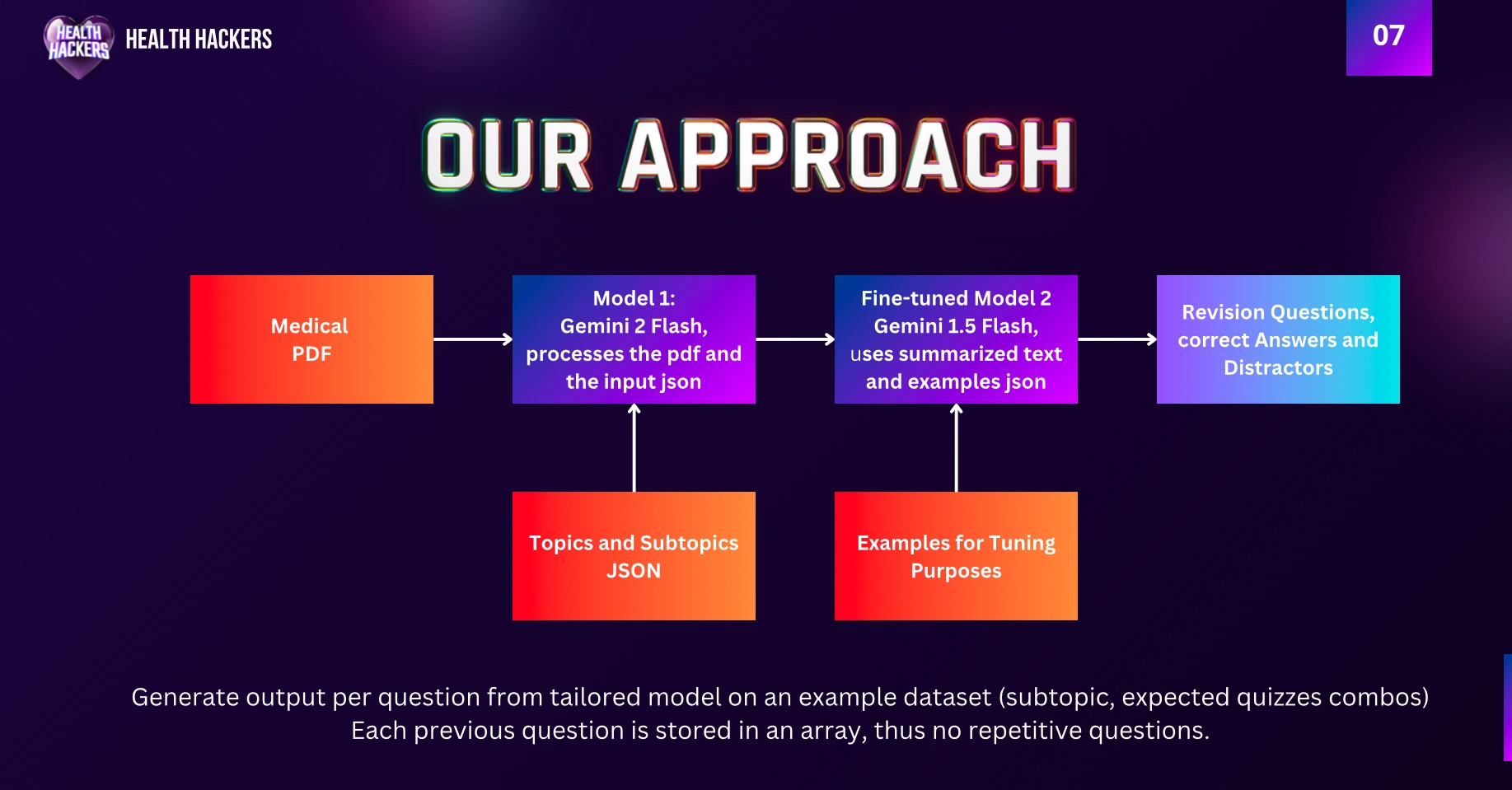
This is the approach we took. (Screenshot from our
presentation)
You can download the complete slide deck of our presentation here. It shows our approach, the results we achieved, the challenges we faced, and even goes into some of the future directions the project could take.
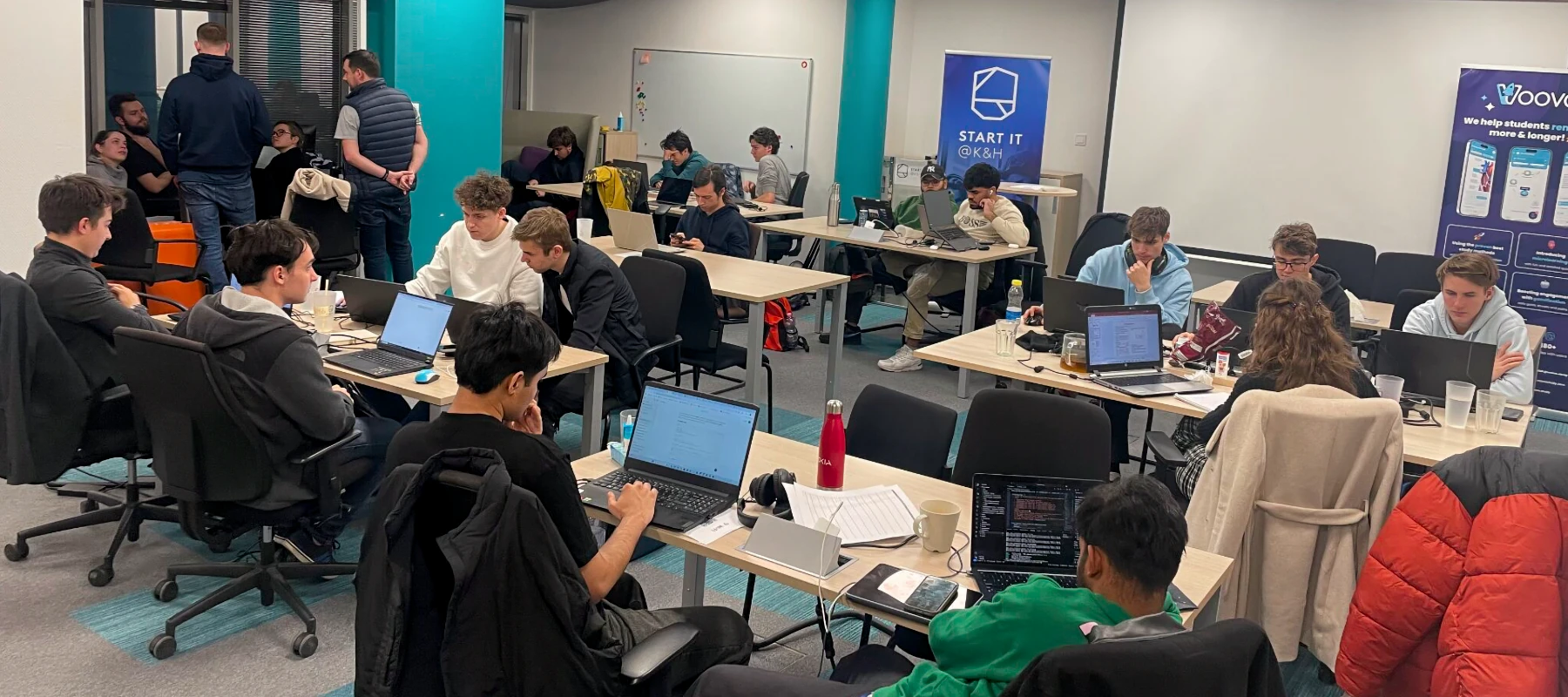
This was the second room with the participating teams. (Photo:
Benedek Hermán)
The Grand Finale: Presentations & Goodbyes
By late afternoon, it was showtime.
Each team took turns presenting. Ours went smoothly, the slides were tight, the demo worked, and we could explain our choices with confidence. We had built something real. Not just an idea, not just a prototype, but an actual AI-powered revision tool that could benefit medical students.
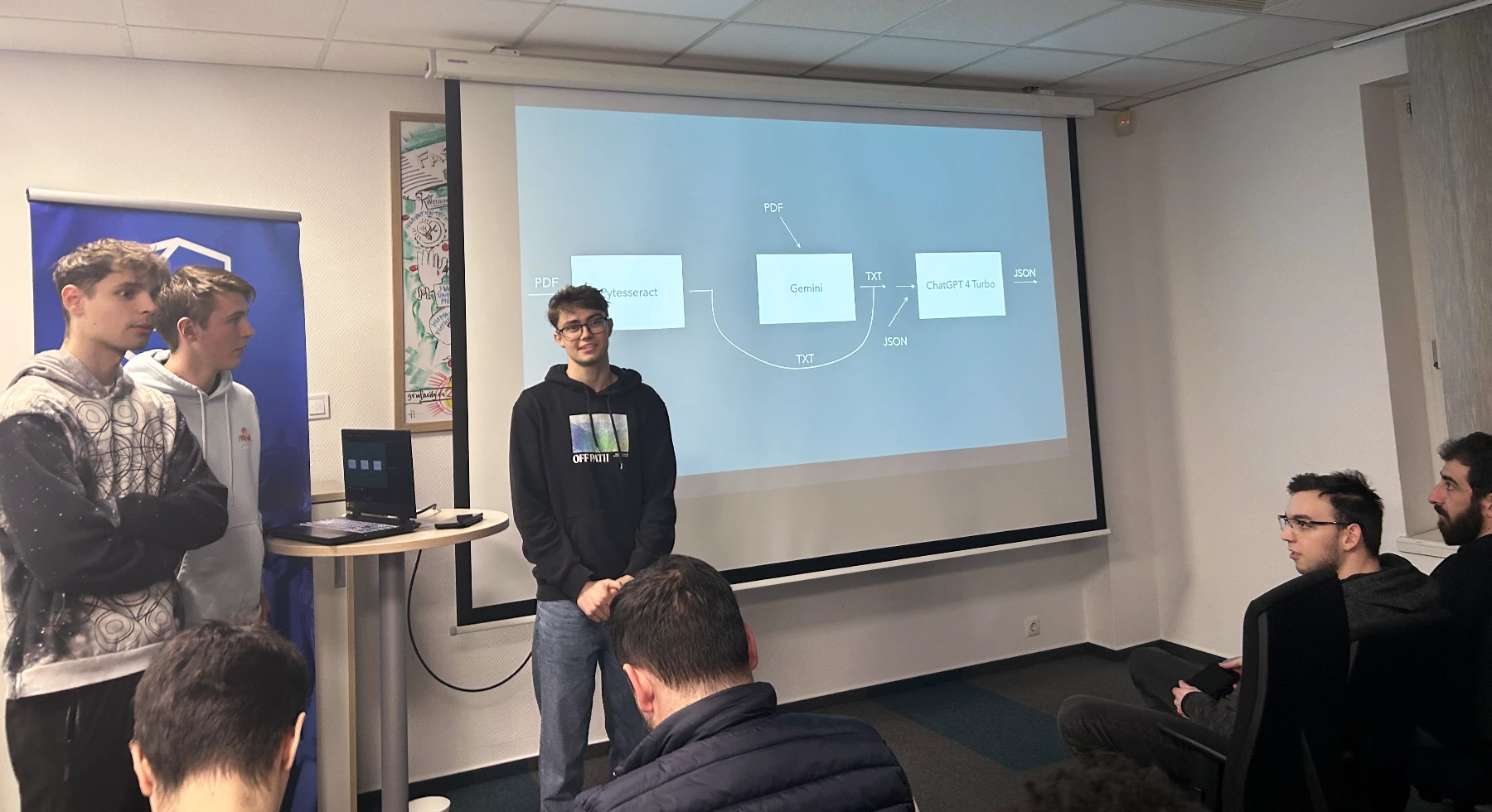
One of the final presentations. (Photo: Marin Balabanov)
As the hackathon came to a close, we gathered for one last celebration. The exhaustion melted away. We laughed, reminisced, and made promises to stay in touch, just like we did in 2023.
We didn't end up winning anything. Looking around at the incredible talent in the room, it was easy to see why. There was a lot of competition with so many brilliant teams delivering impressive solutions. Still, we were proud of what we built. That was award enough (for me at least). The code we delivered ran smoothly, our presentation was solid, and most importantly, we had learned a lot and had fun. This hackathon was different from others we had competed in. The challenge made the experience worth it.
Because that's what hackathons are really about. Not just the code. Not just the competition. But the people you build with.
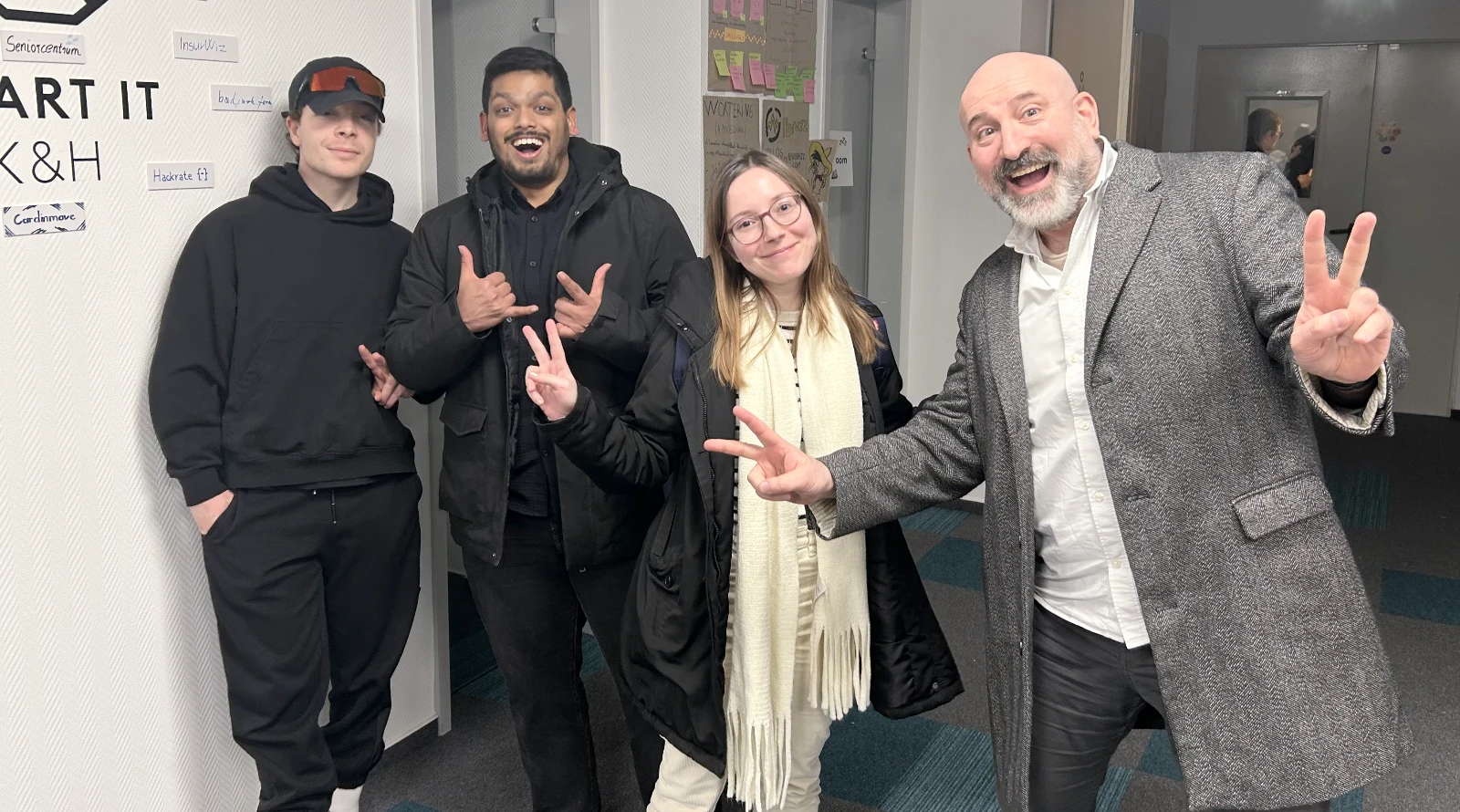
Tired but happy, ready to leave the hackathon. (Photo: another
participant)
Final Thoughts: Lessons from Budapest
As I flew back to Thessaloniki, I thought about what this experience had taught me.
At every hackathon I attend, I'm by far the oldest participant, a fact that is humbling and motivating. On one hand, I'm grateful for the opportunity to work alongside such brilliant, driven young minds, constantly learning from them and staying sharp in the process. It keeps me nimble, and engaged. On the other hand, I do not want my presence to take away from someone else's experience. Perhaps someone who is newer to hackathons and looking for their first big breakthrough might feel intimidated. I certainly don't want that to happen.
In future, I'll try to choose my hackathons more carefully, making sure I'm in the right space where I can contribute. That's why I appreciate events in the demoscene. There the audience skews older, and I feel like I fit in more naturally.
Apart from that, I learned the following things first-hand:
- AI is powerful, but flawed: It can do a lot of useful work but needs human refinement.
- The best teams play to their individual team member's strengths.
- Hackathons test more than just coding skills. They are exercises in communication, adaptability, and strategy.
- Budapest is one of the best cities for innovation, community, and good beer.
Would I do this again? In a heartbeat. Until next time, Budapest!
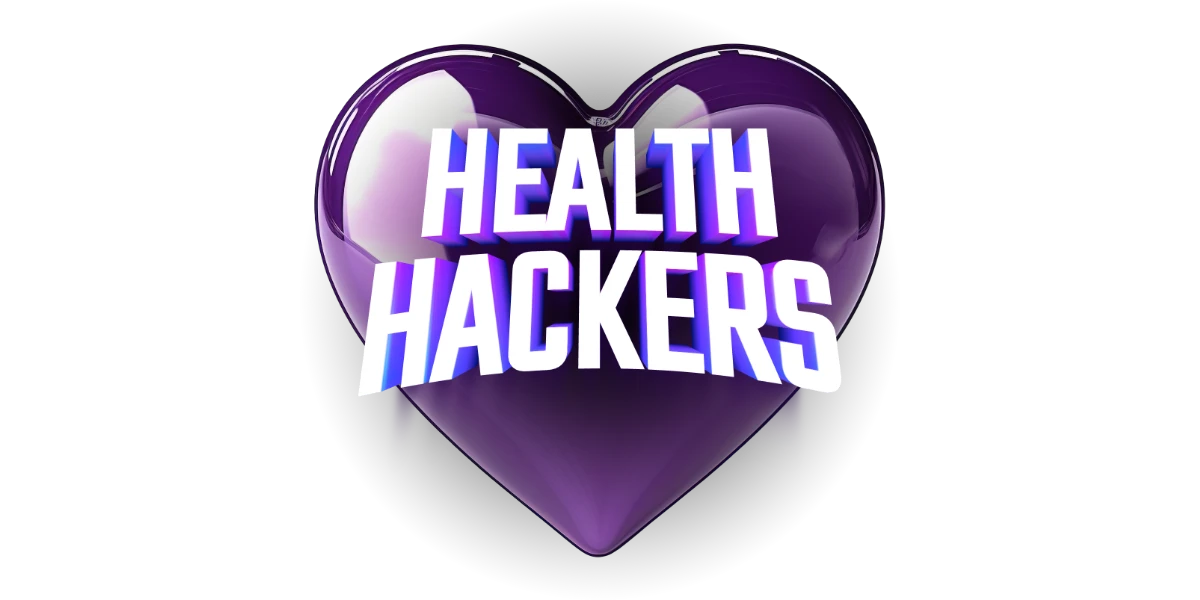
This was the logo we came up with for our team
